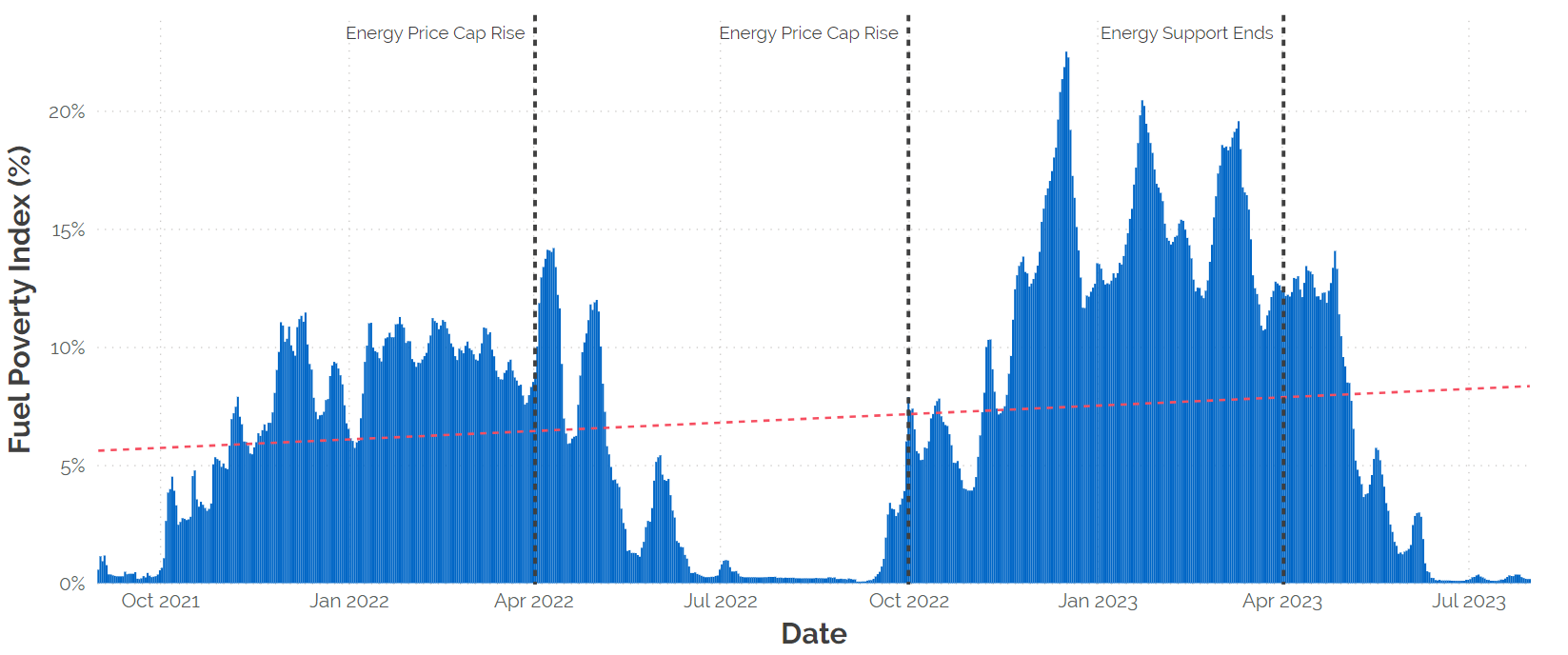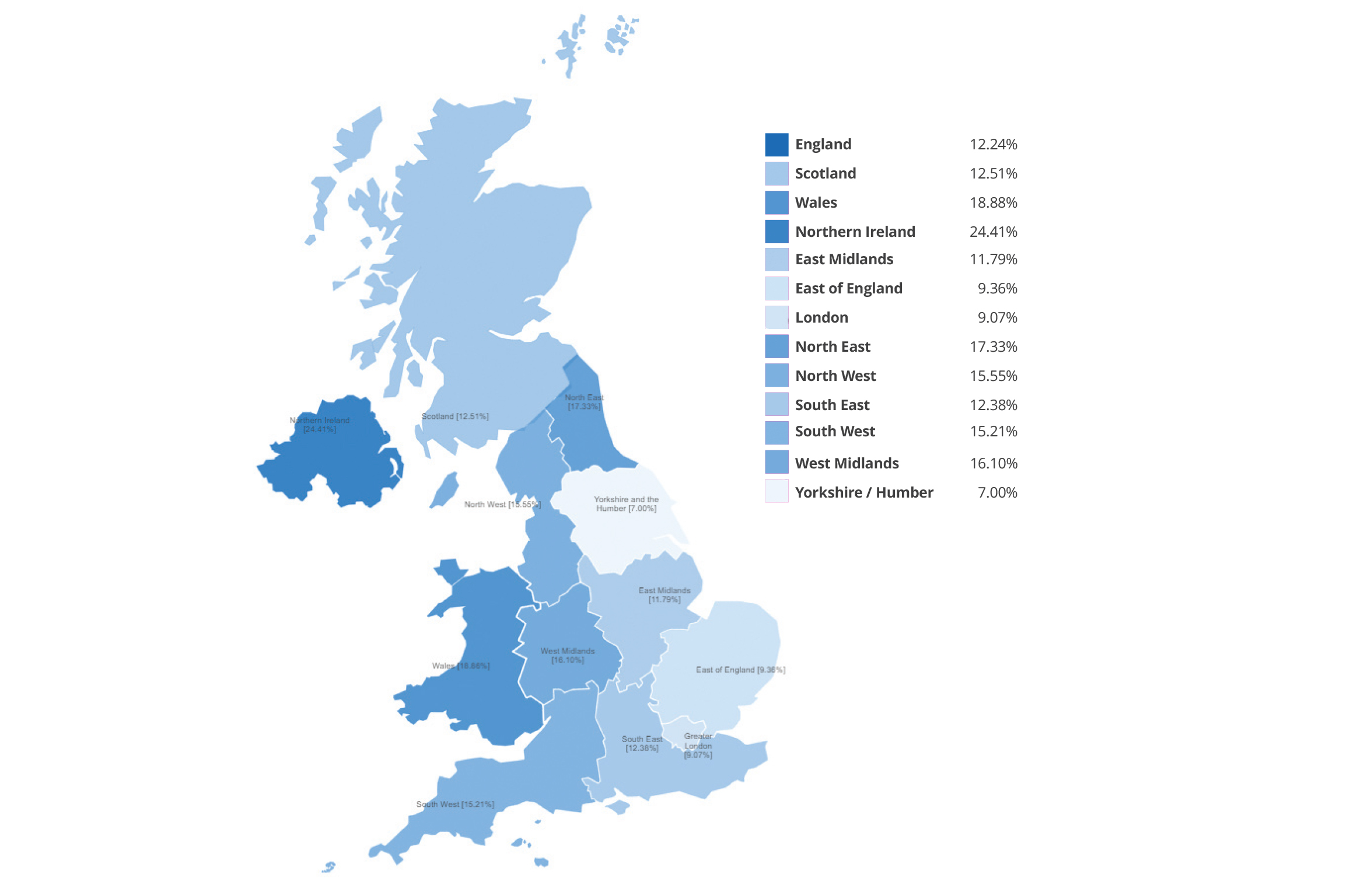Data and insights company, Switchee, has launched its Housing Fuel Poverty Index (HFPI), an aggregated metric spotlighting fuel poverty prevalence within social housing across the UK.
The HFPI will facilitate an improved understanding of the key issues impacting social homes right now, in real-time. It will also provide an invaluable bank of data, with 2021 the starting point, to help those in the social housing sector more efficiently identify and act upon potential future trends. Switchee’s aspiration is that any action taken to improve the lives of those living in social homes, whether by social housing providers or government, is informed and vindicated by solid data, rather than outdated traditional methods.
Switchee CEO, Tom Robins commented: “The sector needs information quickly if it’s to act quickly, and quick action is what the sector needs right now. The HFPI, as an accurate ongoing barometer of the sector’s fight against fuel poverty, will enable social housing providers and policymakers to make meaningful progress at pace — the ultimate aim being to help those who need it the most.”
HFPI data shows us that the UK’s fuel poverty crisis is deepening year-on-year, with 12.7% of UK social homes experiencing fuel poverty in winter 2022-23, compared with 7.9% in winter 2021-22. 2021-22 peaked at 17.3%, while 2022-23 peaked at 23.5% — equating to one in four social homes. That’s 307,016 homes at an increased risk of mould, contributing to an additional potential 16,424 NHS admissions and a possible cost to the UK economy of £52.4m. Switchee calculates that if redirected, £52.4m would cover the annual heating bills of 34,950 homes.
 The worst affected regions throughout winter 2022-23 were Northern Ireland, with an average HFPI percentage of 24.41%, followed by Wales, 18.88%, and North East England, 17.33%. London was the best performing region at 9.07%, followed by the East of England at 9.36%.
The worst affected regions throughout winter 2022-23 were Northern Ireland, with an average HFPI percentage of 24.41%, followed by Wales, 18.88%, and North East England, 17.33%. London was the best performing region at 9.07%, followed by the East of England at 9.36%.
 In the context of Switchee’s HFPI, fuel poverty is defined as homes that never reached a temperature of 18 degrees Celsius (˚C) for any of the previous seven days. 18˚C being the minimum indoor temperature before a risk to health occurs, according to Public Health England. Winter is defined as 1st October to 31st March.
In the context of Switchee’s HFPI, fuel poverty is defined as homes that never reached a temperature of 18 degrees Celsius (˚C) for any of the previous seven days. 18˚C being the minimum indoor temperature before a risk to health occurs, according to Public Health England. Winter is defined as 1st October to 31st March.
This is the first and only real-time metric demonstrating the state of the nation’s social housing fuel poverty crisis. It’s calculated by amalgamating the real-time data captured by tens of thousands of Switchee devices installed in social homes and paints an accurate picture of how fuel poverty in social homes is influenced by external factors and real world developments, accounting for cold snaps and heatwaves, energy price fluctuations, and relevant policy decisions (to name a few).
Data collected is overlaid with further data relating to regional social housing stock and then aggregated as an average. Properties are only included in the HFPI when occupancy is detected and enough data records exist for any given day, therefore eradicating any potential for volatile anomalies.
Switchee is confident the HFPI will serve as the benchmark for social housing performance moving forward, not only for social housing providers and the wider housing sector, but also for Non-Government Organisations (NGOs), heating and poverty charities, regional and national government, journalists and campaigners.
The HFPI will be published quarterly in Inside Housing and is available to view in real-time online here. On any given day people can see how many social homes are in fuel poverty, the UK’s best and worst performing regions, and the possible annual impacts these statistics equate to, including additional NHS admissions, cost to the UK economy and how many homes’ annual heating bills could be covered by this cost.
Switchee is also hosting a webinar on 14th November 2023 which will provide a deeper dive into the HFPI, its full capability and what other insights its data reveals.









